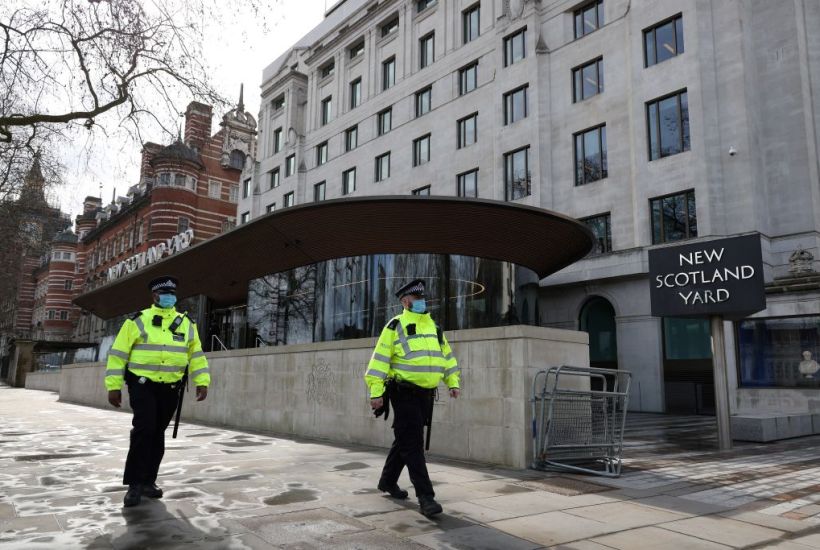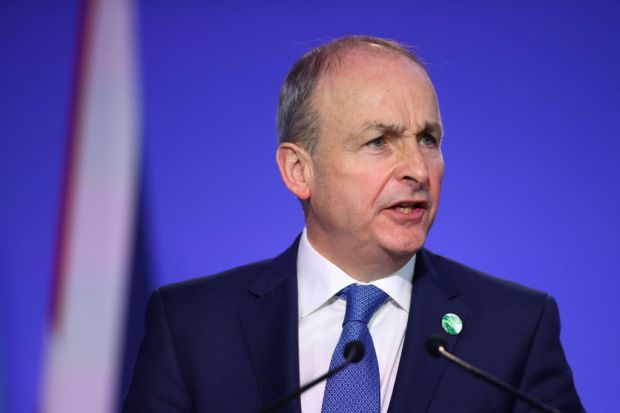How can a country abide a government that consistently says one thing and then does the exact opposite? Whether it’s lockdown two, lockdown three, or masks in schools, the government has consistently stated one thing and then changed its mind months, weeks, or even hours later.
This not only exacerbates the problem of trust in politicians, but in ‘the science’, which they have clutched as a shield to cower behind whilst making political decisions. The latest example is the shifting of the goalposts around when lockdown will finally end. Ministers began by saying they would ‘cry freedom’ when the vulnerable were vaccinated, but now it seems entirely possible that we will still face restrictions even after everyone is offered a vaccine.
This erosion of trust is having a particularly stark impact on policing. In November, I discussed my concern that the government’s ever-changing and punitive approach to the policing of lockdown restrictions could drive social unrest. Concerned this would lead to growing public frustration with restrictions no longer seen as legitimate, I felt that I could no longer police the coronavirus regulations and resigned as a special constable last year. Indeed, such public frustrations appear to have come to pass. Sadly, police officers from my previous force recently suffered injuries after some protestors in Bristol resorted to violence, and in cities such as Nottingham, authorities have decided to close parks due to fighting between groups of young people.
The police are charged with upholding laws passed by politicians. And without much (or let’s face it, any) parliamentary scrutiny, and an all but horizontal opposition, these laws are passed with no checks and balances to test whether they are reasonable or proportionate. The government have given the police an impossible task this year, and the constantly changing and conflicting messages the public receive makes policing the restrictions a ‘no win situation’.
This further erosion of public trust in authorities comes alongside the worrying trend of creeping authoritarianism. The Coronavirus Act was recently extended for another six months, without so much as a whimper from the opposition benches. It was only recently – following the Clapham Common protests – that many people realised the extent to which our civil liberties have been constrained. It was disappointing, but not surprising, that many of our politicians only noticed this when a cause they felt personally aligned to was not allowed to legally demonstrate. Chillingly, such infringements on our freedoms to assemble and protest could be set to continue, if the new Police, Crime, Sentencing and Courts Bill is passed.
I am seriously concerned that we may already have fallen too far down the slippery slope. The latest incarnation of this recurring authoritarian nightmare comes in the form of vaccine passports, with government propping this up as the ‘final’ way to ‘get out’ of the pandemic (I am losing count of how many of those have been posited to date). Not only would vaccine passports ignore the fact that coercion is widely regarded as bad practice in public health, it would once again leave behind the most vulnerable in society, branding many as outcasts. Groups who lack trust in authorities are most likely to reject vaccines, and coercing them to take one is unlikely to improve that trust. In 2004, Boris Johnson said that if an ‘arm of the state’ ever asked him to produce an ID card, he would eat it in front of them. But vaccine passports now seem to be a foregone conclusion, and it’s hard to see what the PM actually stands for – his ‘liberal at heart’ platitudes are just not believable. The man seems to simply be a vessel for the opinions and ideas of others. Doubly concerning, one backbench conservative MP told me last week that he has recently come to believe that government’s ‘no return to lockdown’ promise is built upon mandatory vaccinations and vaccine passports.
Public opinion, especially when created by fear, is fickle. Now that such a high proportion of the population have been vaccinated, for how much longer will we tolerate restrictions on our lives and livelihoods?The local elections in May are perhaps the perfect testing ground for this. Yes, they are ‘just local elections’, but they can and have been used by the public to make their feelings on current affairs known. I can only hope that the public will take this opportunity to let the government know that this creeping authoritarianism is not acceptable.
Got something to add? Join the discussion and comment below.
Get 10 issues for just $10
Subscribe to The Spectator Australia today for the next 10 magazine issues, plus full online access, for just $10.




















Comments
Don't miss out
Join the conversation with other Spectator Australia readers. Subscribe to leave a comment.
SUBSCRIBEAlready a subscriber? Log in